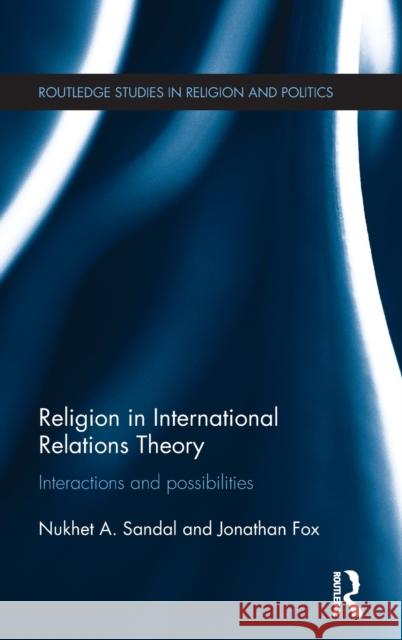Religion in International Relations Theory: Interactions and Possibilities » książka
Religion in International Relations Theory: Interactions and Possibilities
ISBN-13: 9780415662628 / Angielski / Twarda / 2013 / 228 str.
Religion in International Relations Theory: Interactions and Possibilities
ISBN-13: 9780415662628 / Angielski / Twarda / 2013 / 228 str.
(netto: 788,12 VAT: 5%)
Najniższa cena z 30 dni: 774,06
ok. 16-18 dni roboczych.
Darmowa dostawa!
There is a growing realization among scholars of international relations that religion is an important factor in global politics. Numerous events have led to this realization. Among these events are the Iranian Revolution, the September 11 attacks, the rise of Al Qaeda on the international scene and the ethno-religious conflicts such as the ones in the former Yugoslavia, Sri Lanka and the Middle East. The successes of religious political parties across the world ranging from the Christian Democrats in Europe to Bharatiya Janata Party in India similarly illustrated religion's growing international profile. There is also a growing recognition of the influence of religion on individual policy-makers and the influence of international religious figures such as the Pope and the Dalai Lama.
Recently, there have been increasing efforts to grapple with understanding religion within a discipline which has been dominantly secular from its inception. Yet, only a few of the existent works have attempted to integrate religion into core international relations theories such as Classical Realism, Structural (Neo) Realism, Neo-Liberalism, and the English school. This work seeks to assess whether an understanding of religion can be systematically integrated into these theories without losing the core insights these theories already bring to international relations.
Written in an accessible and systematic fashion, this work will be an important addition to the fields of both religion and international relations.











